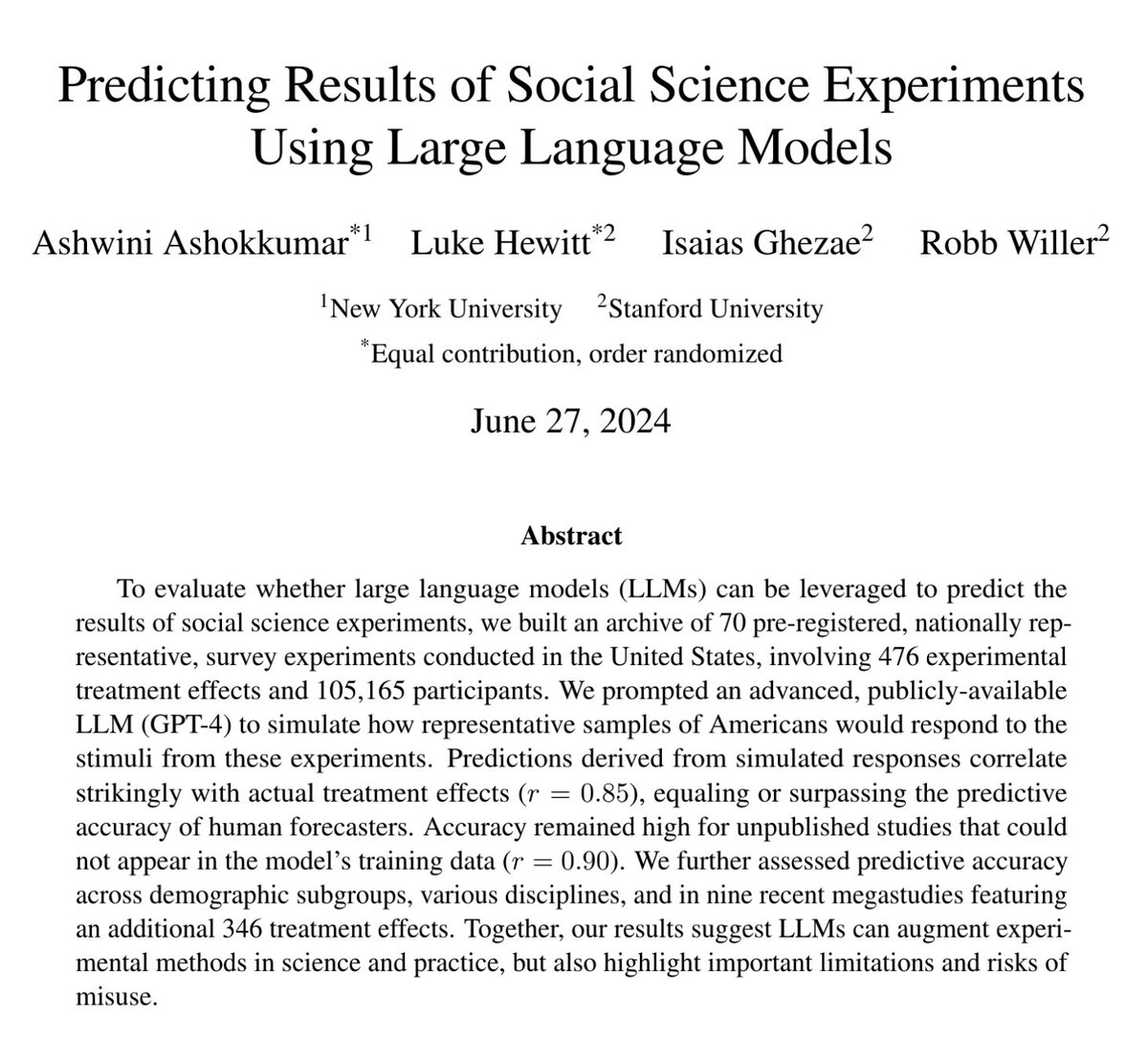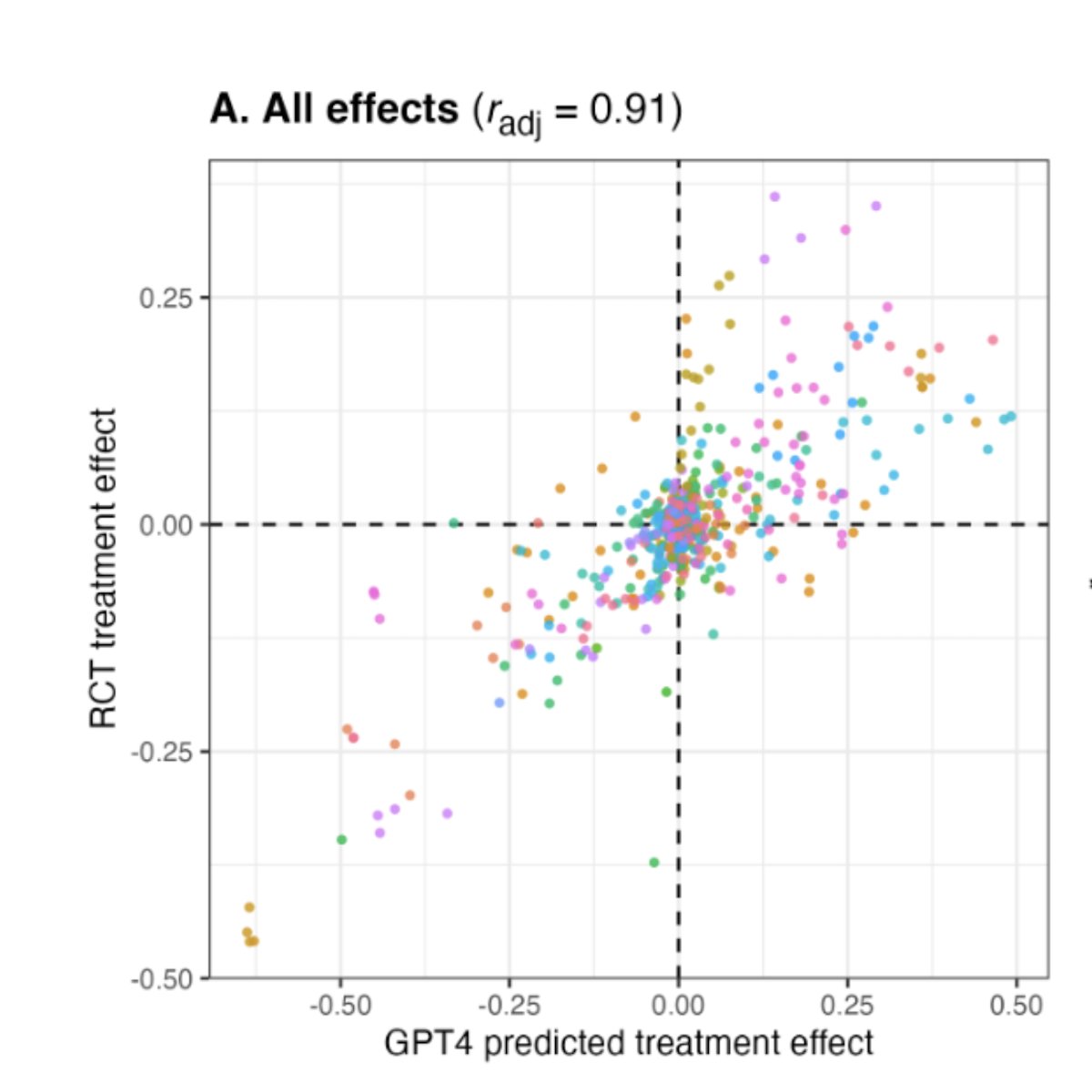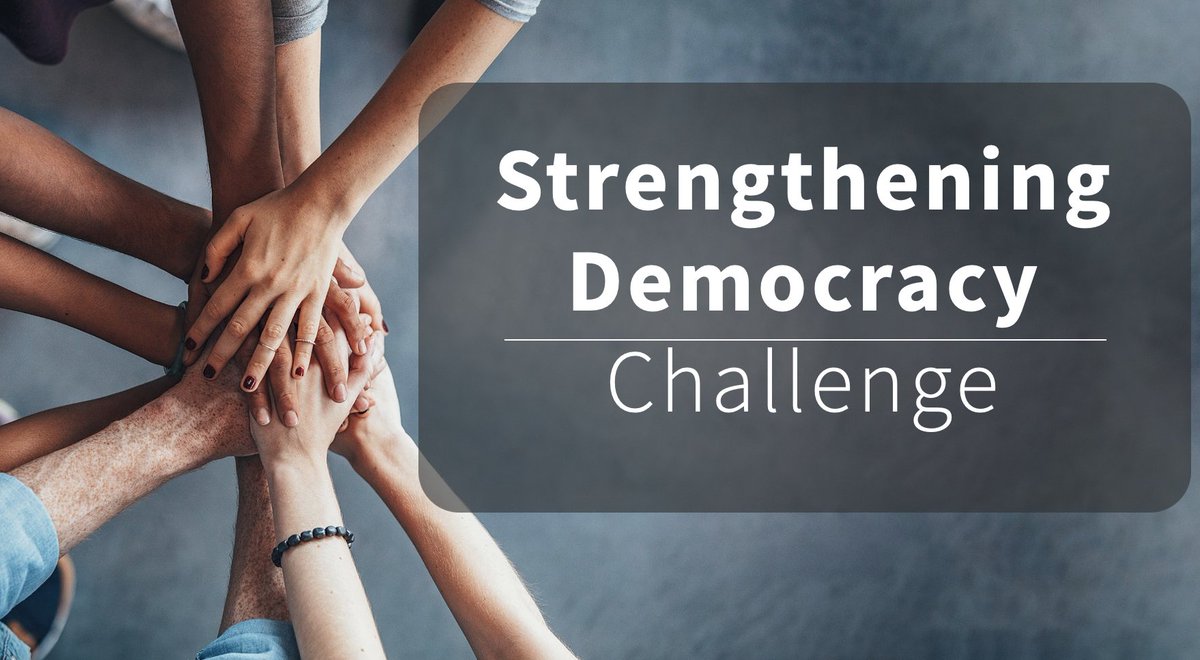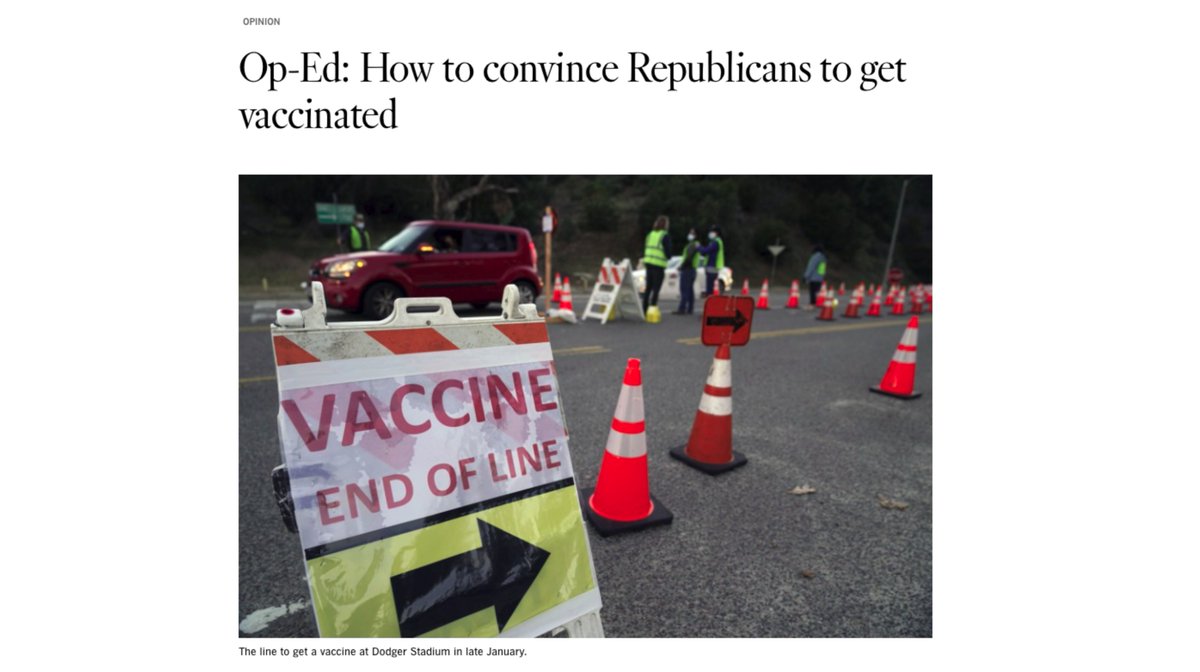
Professor of Sociology, Psychology, & Org Behavior @Stanford. Director of Polarization and Social Change Lab, Co-Direct @StanfordPACS. Obsessive basketball fan
How to get URL link on X (Twitter) App


 Using historical+int'l data, @EricaChenoweth & Stephan show resistance campaigns in 20th century were 2x as successful if they maintained nonviolent discipline than if they did not.
Using historical+int'l data, @EricaChenoweth & Stephan show resistance campaigns in 20th century were 2x as successful if they maintained nonviolent discipline than if they did not.



 To evaluate predictive accuracy of LLMs for social science experiments, we used #GPT4 to predict 476 effects from 70 well-powered experiments, including:
To evaluate predictive accuracy of LLMs for social science experiments, we used #GPT4 to predict 476 effects from 70 well-powered experiments, including:




 ⚡️For a quick summary of our results, check out this excellent video produced by the brilliant folks @StanfordHAI (& the thread below!)⚡️
⚡️For a quick summary of our results, check out this excellent video produced by the brilliant folks @StanfordHAI (& the thread below!)⚡️



 In line with claims that American democracy is in crisis, we found concerning baseline levels of potentially problematic attitudes, e.g.:
In line with claims that American democracy is in crisis, we found concerning baseline levels of potentially problematic attitudes, e.g.:


 BACKSTORY: last summer we invited people to submit ideas for how to reduce Americans’ anti-democratic attitudes, support for partisan violence, and/or partisan animosity.
BACKSTORY: last summer we invited people to submit ideas for how to reduce Americans’ anti-democratic attitudes, support for partisan violence, and/or partisan animosity.https://twitter.com/robbwiller/status/1417548995434405890?lang=en

 American democracy faces major problems. Americans are willing to compromise on democratic principles for partisan goals. Some people are willing to resort to violence to help their side win. Extreme dislike for rival partisans has grown significantly in recent decades. 2/
American democracy faces major problems. Americans are willing to compromise on democratic principles for partisan goals. Some people are willing to resort to violence to help their side win. Extreme dislike for rival partisans has grown significantly in recent decades. 2/

 We identify three broad approaches - general public health messages, promotion by trusted politicians, and promotion by trusted nonpolitical influencers – identifying behavioral science relevant to each.
We identify three broad approaches - general public health messages, promotion by trusted politicians, and promotion by trusted nonpolitical influencers – identifying behavioral science relevant to each.

 High vaccination rate is key for herd immunity. But vaccine intentions are deeply polarized. ~40% of Republicans report they won’t vaccinate, essentially the same % as in Nov. A flat line for 5 months! (while other groups - e.g. racial minorities - have shifted substantially)
High vaccination rate is key for herd immunity. But vaccine intentions are deeply polarized. ~40% of Republicans report they won’t vaccinate, essentially the same % as in Nov. A flat line for 5 months! (while other groups - e.g. racial minorities - have shifted substantially) 